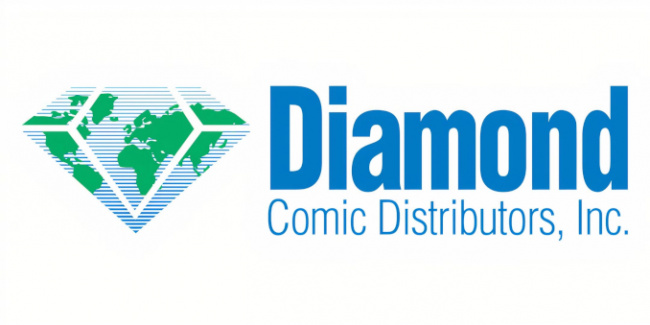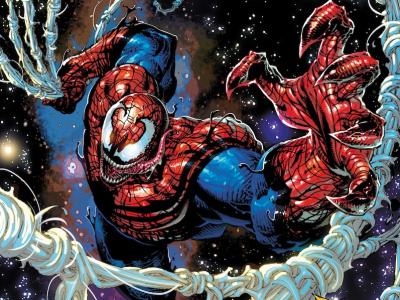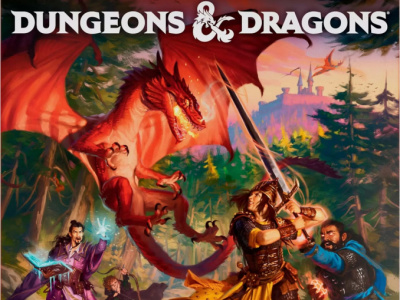That bit of news leaves publishers and retailers wondering for a little longer about future distribution arrangements for a chunk of books on the market, as well as the disposition of monies owed by and to Diamond. In ICv2's followup post Monday morning, one of the grounds for termination of the purchase agreement is "if Chapter 11 is converted to a Chapter 7 bankruptcy" (see "More on Alliance Entertainment Termination, Back-Up Bid"). Chapter 7 means the company gets liquidated out of existence, which would not be good. No reason to believe that's in play except that, well, there it is as a possible explanation for the weird thing that just happened, and it just showed up again in a new filing (see "Trustee Moves to Convert Diamond Bankruptcy to Chapter 7 (Liquidation) or Dismiss.").
The uncertainty surrounding what used to be a pillar of the industry is almost worse than bad news straight up. If Diamond comes out the other side with a new owner and a new lease on life, that suggests one set of possibilities. If it goes under for good, that suggests another. But leaving it unresolved for an extensive time while everything gets relitigated just leaves everyone feeling helpless.
Microcosm, meet macrocosm. Meanwhile, in the rest of the world, the impact of on-again, off-again tariff announcements has turned the United States (and by extension, the rest of the world) into a command economy where financial outcomes hinge on the whims of a single leader rather than on business fundamentals. That's… exciting, even if you share the Trump administration’s vision for the country.
Among other things, it makes it uniquely difficult to plan more than a few weeks ahead, because if you assume tariffs will be in place and they're not, you run the risk of being undercut by lower cost foreign suppliers, whereas if you bank that they won't last and they do, you might get stuck paying huge excess fees, assuming the foreign company even wants to bother doing business with the U.S. anymore. In many cases, there is not an alternate source of supply regardless.
More worryingly, the rest of the economy outside of our little industry is facing the same issues on a grander scale. When big companies are caught in the headlights, they cut costs, stop hiring and/or cut the workforce, which puts more people out of work. Add that to the hundreds of thousands of people the federal government has already cut from stable, decent-paid jobs around the country and you're looking at a bigger economic slowdown.
Sooner or later, people whose businesses are failing or who can't find work start falling behind on credit card, rent or mortgage payments, and that ends up leaving a mark. Remember 2008? Yeah. Good times.
Back then, the G.W. Bush administration, which wasn't exactly a model of competence, still managed to project a sense of urgency and consistency in dealing with the crisis, working in lockstep with the Fed and both parties in Congress to come up with a response that prevented a total meltdown. A well-timed election put new folks in power just when the world was ready to see a different face of American leadership. And even with all that, we still got stuck with a downturn that lasted for years.
On the other hand… The ironic thing is that, if not for these external and hard-to-plan-for events, things were going pretty well. Consider that:
- The comic market expanded last year and appeared to be poised for additional growth.
- We have a summer of pretty good superhero movies ahead of us, with Thunderbolts getting good early buzz and the trailers for both Superman and the Fantastic Four looking like they could be a lot of fun. Add in the promising debut of Andor Season 2 and we have the rare harmonic convergence of Marvel, DC and Star Wars all delivering well-regarded media at the same time.
- On the comic racks, we have the DC-Marvel crossovers to look forward to, plus Godzilla vs. Marvel. There's follow-up to the surprise 2023 hit Beneath the Trees Where Nobody Sees coming soon. All those copies of Planet Death will be hitting the streets later this week. Oni’s EC revival is picking up steam. We're in a good moment for publishing too.
In short, this should be a season of good news for the business. But it's hard to sell to customers who are broke, especially if the products you sell end up costing more due to tariffs.
Look, we never have perfect foresight about developments in business or the world. We always have to plan for the unexpected. Predictability is boring.
On the other hand, a little bit of boring would be awfully nice right now.
The opinions expressed in this column are solely those of the writer, and do not necessarily reflect the views of the editorial staff of ICv2.com.
Rob Salkowitz (Bluesky @robsalk) is the author of Comic-Con and the Business of Pop Culture and a two-time Eisner Award nominee.










